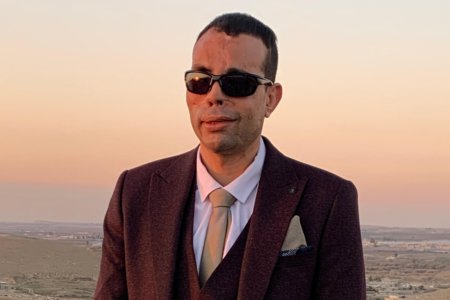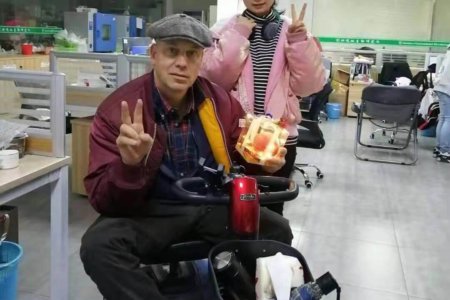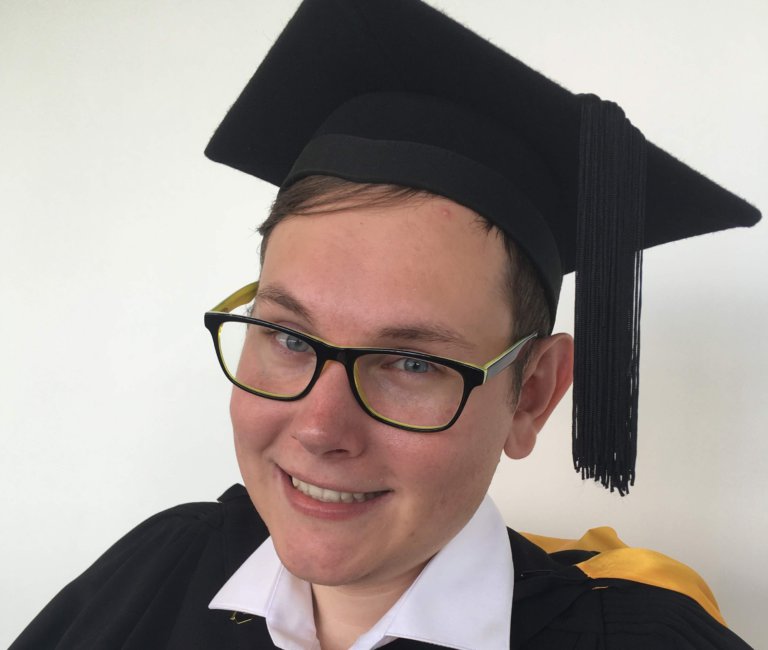
Living with a disability is challenging, but for Eugene Liapin, it’s proved to be even harder. The Russian has a condition called Kugelberg-Welander Syndrome Type 3, a rare form of spinal muscular atrophy that has left him permanently wheelchair-bound.
Now, living in New Zealand, he’s had to fight hard for his work visa due to the immigration’s claims of him “likely to impose significant costs and demands on New Zealand Health services.” This comes after his doctor in New Zealand said his condition is stable and wouldn’t impose any more risks than any other person entering the country.
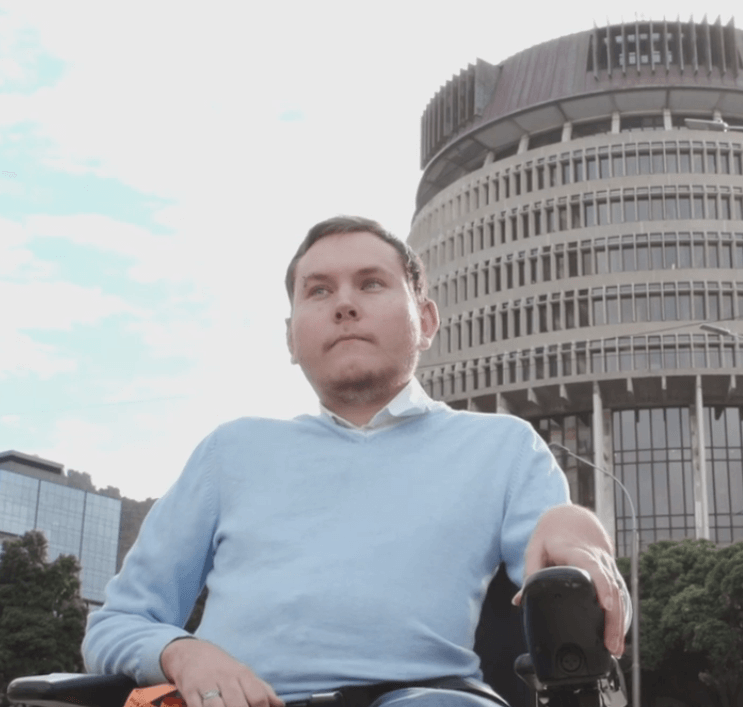
Liapin chose to study in New Zealand, thanks to its affordable tuition fees. Source: Eugene Liapin
This prompted Liapin to share his story on social media, garnering the attention of major news outlets. He was eventually invited to apply for reconsideration for his post-work study visa — and won.
We talk to this Russian graduate about what living in New Zealand is like as a differently-abled person and the challenges he has faced:
What made you choose to study abroad?
I lived my whole life with my wife in Moscow, the capital of Russia, and graduated as a producer of the performing arts. After that, I wanted an international experience and was keen to pursue public relations, which is how I ended up at the University of Waikato in New Zealand.
My wife and I wanted a new experience and we researched English-speaking countries like Australia, the US, and the UK. However, New Zealand was the more affordable one, in terms of tuition fees. Another thing was the warmer climate and the accessibility for people in wheelchairs.
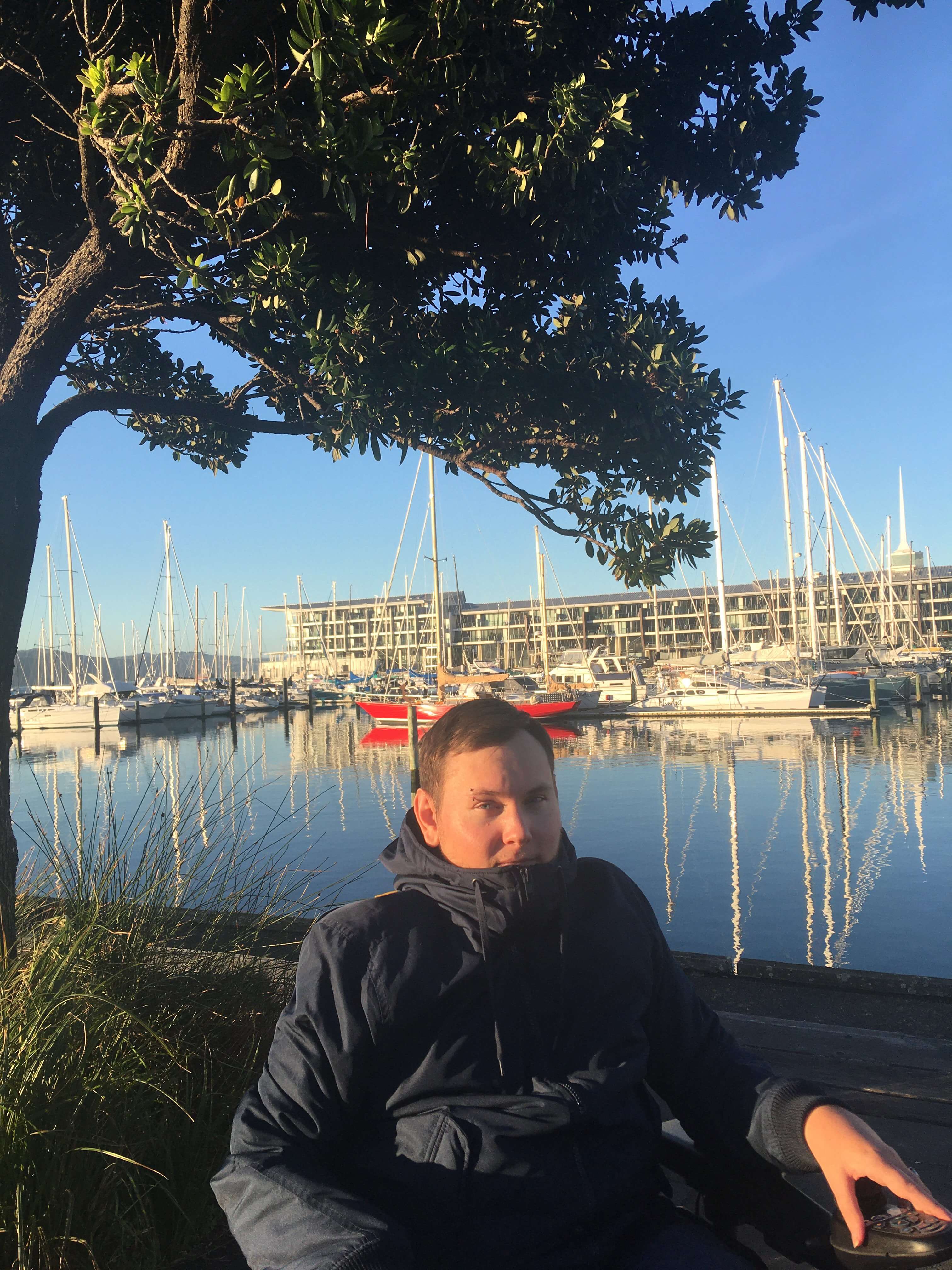
Accessibility is still a problem for Liapin in New Zealand, who is wheelchair-bound. Source: Eugene Liapin
What do you like most about living in New Zealand?
I would say the friendliness of the people and how open-minded they are. I feel like there’s less judgement here so I’m able to be more myself.
Walk us through Kugelberg-Welander Syndrome Type 3 and the challenges you face.
So, I’m moving around in a wheelchair because I have weak muscles. My wife transfers me from place to place using a hoist.
Before, I tried to study at Toi Ohomai Institute of Technology in Tauranga and that changed because I wasn’t interested in the programme, but nowadays, most places do a great job in being more accessible. Sometimes it’s challenging when there are doors you have to manually open and I have to ask someone to help me.
Other than that, I’d say unis are quite accessible for people in wheelchairs. For example, in tests, they provide a person who will handwrite your answers if you struggle to do so.
Can you share a bit about your hometown with us?
Well, Moscow is a huge city and a very historic place. The Red Square Bolshoi Theatre is right in the middle of the city where you can also enjoy many different architectural styles. It’s also one of the best places in terms of cultural and art performances, so theatres there are a must-go.
What about exploring New Zealand? Is there a location that stood out to you?
I would say living in New Zealand is a little challenging, in terms of exploring, for people with disabilities and for wheelchair users. The cities are accessible but there is a big problem in terms of moving from one city to another here.
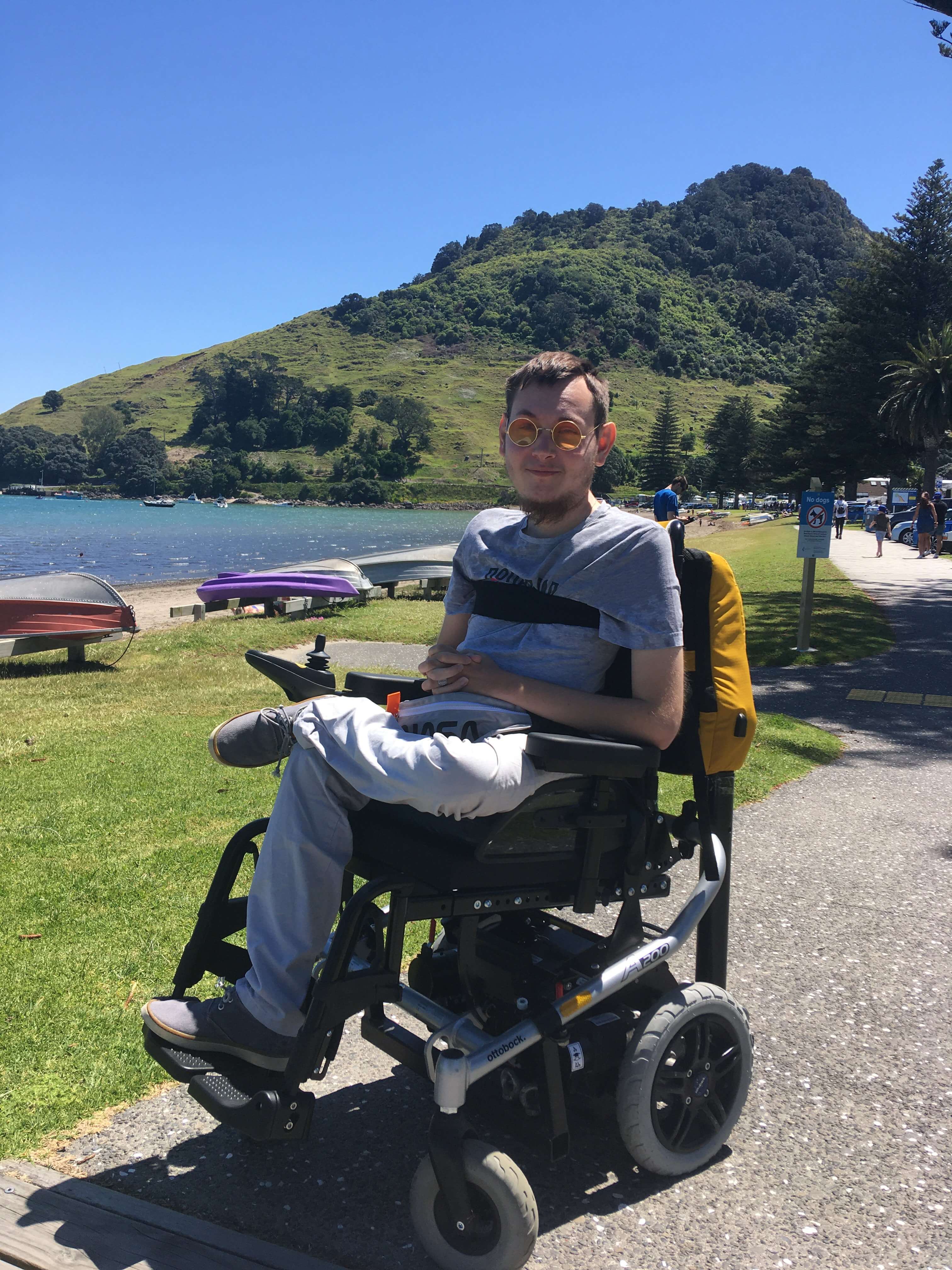
Understanding the Kiwi accent is still challenging for Liapin. Source: Eugene Liapin
The intercity buses are not wheelchair accessible, so it’s harder to go outside the cities, which can be a bit frustrating. There are a lot of places to visit outside the cities like Lake Taupō, the fjords, and forests.
To add to that, since my wife and I don’t own a car and there is no accessible public transport, it’s disappointing to not be able to visit such spots. However, I’ve been to the mountains and that stood out to me.
Also, Wellington has the feel of a big city with lots of good restaurants, a great waterfront, and many things to do.
What about the local food, compared to home? What’s you’re most and least favourite meal?
Of course, home food is comfort food, and when you’re far away, you get homesick. Once a week, we try and make “blini” (Russian pancakes) because it takes me back to my childhood memories.
In terms of food in New Zealand, I think the great thing is that it’s very multicultural so you can find a whole variety of cuisines. I would say fish and chips (which is actually British) is a favourite — but I also love junk food.
Before living in New Zealand, I have never tried Indian food and I thought it would be too spicy for me to handle. But after my wife and I tried chicken tikka masala (roasted chicken in curry sauce), we fell in love with it (I was a vegetarian for five years before this!).
What about the English language barrier? Was that hard to overcome?
As I mentioned, New Zealanders are quite friendly but the biggest challenge is their accent — they have quite an interesting one, which you won’t understand for the first few weeks. Most foreigners learn English through movies which are usually American or British, and people here have unique pronunciations. They also use a lot of slang and Maori words.
Do you have any plans for working or pursuing further education there?
After graduating here, we had a situation with immigration, as you know. They thought I would be a burden for the local healthcare system which, in my opinion, is unfair. For a few months, I struggled to overcome this obstacle but it was quite a fight.
Now, I’m working at the University of Waikato as a tutor providing students with support and guidance and leading tutorials. It’s interesting because half of my students are Kiwis and half are Chinese.
It’s been a great experience, understanding how to work with different nations and nationalities. In terms of living in New Zealand, my wife and I plan to stay here for maybe a year or so to earn and save money before continuing onto Europe.
This all depends on the next steps to renew our certificates and finding educational programmes there.
What’s your advice for international students who want to study in New Zealand?
For me, it’s all about immersing yourself. I’m watching local vloggers here to try and understand the mentality of local people, the pronunciation of words, and the way of life.
You have to be prepared for this, but don’t be too worried. New Zealanders are quite happy to help you with anything if you just ask. Also, be aware that long flights to visit your hometown might be quite expensive, and the time zone will leave you with only a few hours to get in touch with your friends and family from afar.
Although this is frustrating, I’m glad that I have my wife to talk to every day and this makes everything much easier.

“The intercity buses are not wheelchair accessible, so it’s harder to go outside the cities which can be a bit frustrating,” Liapin says. Source: Eugene Liapin
Do you have any budgeting advice for students abroad?
The biggest advice is to save as much money as you can before you head abroad as you might not find enough time to work during your studies — priorities include accommodation and food as they’re the biggest costs of your budget.
For a month, with 100 New Zealand dollars, it would be 10 days of food for my wife and me.
Lastly, can you share three fun facts about yourself?
My wife saw my x-ray before she saw my photo because she was a doctor back in Moscow, a fun memory.
I swear a lot. But there are so many emotions for different situations so sometimes when I use inappropriate language, I use it in Russian. So, nobody understands when we use obscene language which helps us cope with stress.
I broke down an attraction in Disneyland in Paris. My mother tried to help me get from my wheelchair to the attraction ride and it just didn’t start. It’s kind of ironic how I was able to skip the queue of hundreds of people and have the ride break down when it was my turn.








